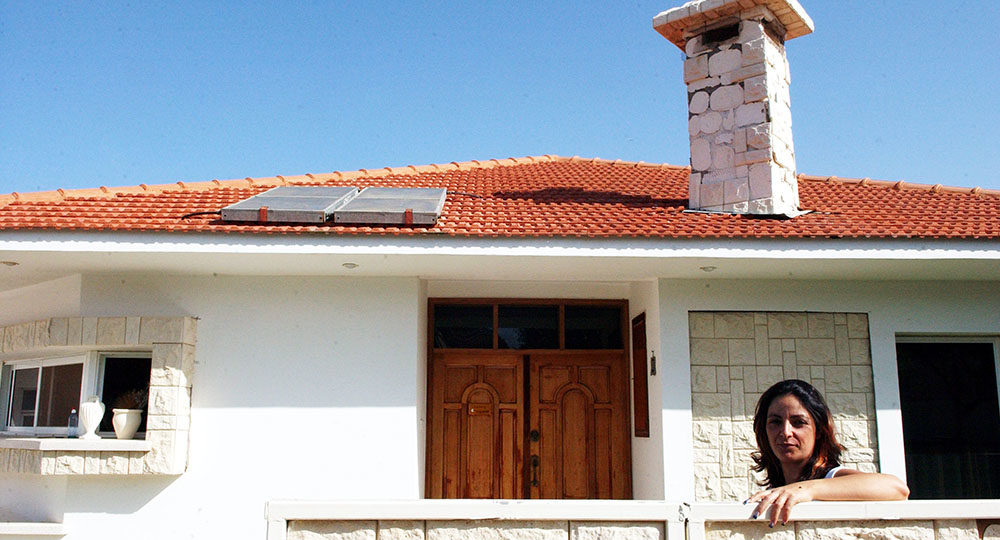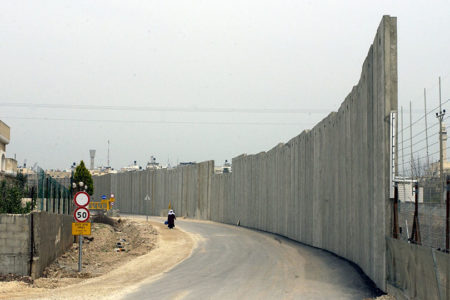They Must Start Over—Again
Nisanit was the second largest of the 21 Gaza Strip Jewish communities destroyed in August. The oldest was Kfar Darom, erected in 1946, two years before Israel became a state. It was destroyed by Egyptian forces in 1948 and rebuilt in 1970, three years after Israeli forces captured the entire Gaza Strip from Egypt during the dramatic Six-Day War.
Established in 1984, Nisanit grew to more than 1,000 residents by early 2005. Among those living there were Moshe and Tina.
After moving to Israel from Massachusetts in 1994, Tina met her future Sabra (native-born Israeli) husband through a mutual friend. The couple spent their first married years in rented quarters in Gadera, south of Israel’s Ben-Gurion International Airport in Tel Aviv.
Moshe and Tina were eventually drawn to the northern Gaza Strip community of Nisanit, located just a few miles north of Gaza City and about the same distance south of the growing Israeli coastal town of Ashkelon. They bought their newly built home in the mixed religious-secular community in 1999.
A warmhearted American, Tina noted that she and her husband, like many of their former neighbors, had moved to Nisanit for quality-of-life reasons rather than ideological ones. “We really couldn’t afford a house in most parts of the country,” she said, adding they “believed God led us here and opened the door for us to buy our own home.” Tina’s cream-colored house was located close to the beautiful Mediterranean Sea and “came with a private fenced yard, and at a price we could afford.”
When Moshe and Tina purchased their home, the 1993 Israeli-Palestinian Oslo peace accord was on increasingly shaky ground. Yet it was more or less still in effect. However, by the time they finally moved in during the second half of 2000, the Palestinian al-Aqsa attrition war had begun.
“We realized that Nisanit was near several Gaza Strip Palestinian towns and that our community was now being subjected to terrorist infiltrations and rocket attacks. Still, it was our home, and for whatever reason, it was where God wanted us to live.”
Tina’s newly built home needed lots of work, especially to transform the sandy yard into a beautiful garden. In time, she and Moshe were able to “walk along stone paths in our garden, lined with rose bushes and flowering vines, and to eat the fruit from our pomegranate tree.” All that has now been bulldozed into the ground.
Just weeks before they were evacuated from Nisanit, along with all of their neighbors, Moshe and Tina worried about the practical aspects of the Likud-led government action. “The piece of paper that says we own this home is suddenly worth virtually nothing, yet our bank will expect continued monthly mortgage payments. We think the best option would be if we can apply the mortgage toward the purchase of another home.”
Like all of the estimated 3,000 Israeli adults and 5,000 plus children removed from the Gaza Strip, Tina and Moshe were notified of several potential housing solutions.
Tina said most of the proposals were either inadequate or ephemeral. “Do we move to a house we really haven’t had time to search for or to a temporary apartment or trailer home? And do we rent or buy with the compensation money we are due to receive—even though we aren’t sure when it will arrive? These are just a few of the issues we’re being forced to grapple with while dealing at the same time with the emotional trauma of being evicted from our home.”
Speaking while Palestinian rockets and mortar shells fell on Nisanit and surrounding Jewish communities one month before the scheduled pullout, Tina said she and Moshe might move to northern Israel with several other area families. While she noted that the potential destination is also near the lovely Mediterranean coast and that the area is greener than the Gaza Strip—getting much more annual rainfall—it is also not far from Israel’s often volatile northern border with Lebanon.
“We’ve wondered if we might be exchanging Palestinian rockets for Hezbollah missiles,” she said. But she stated firmly, “If the door to reside in the north opens, we will walk through it.”
Whatever threats the couple might encounter in the future, Tina affirmed that she and Moshe will “continue to trust in God for our well-being.”







